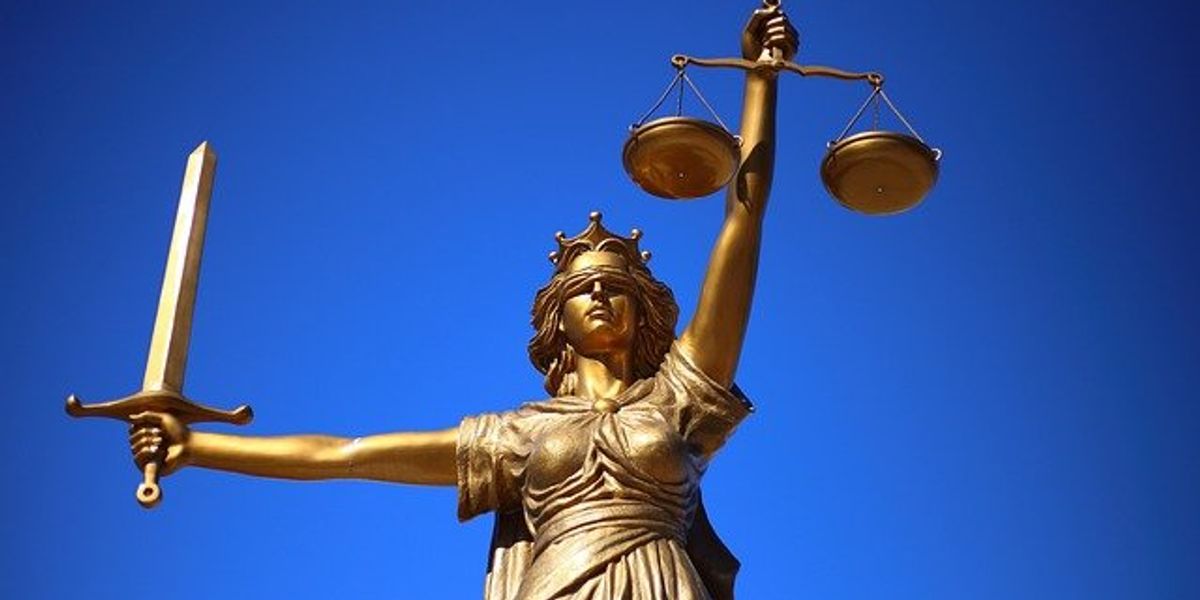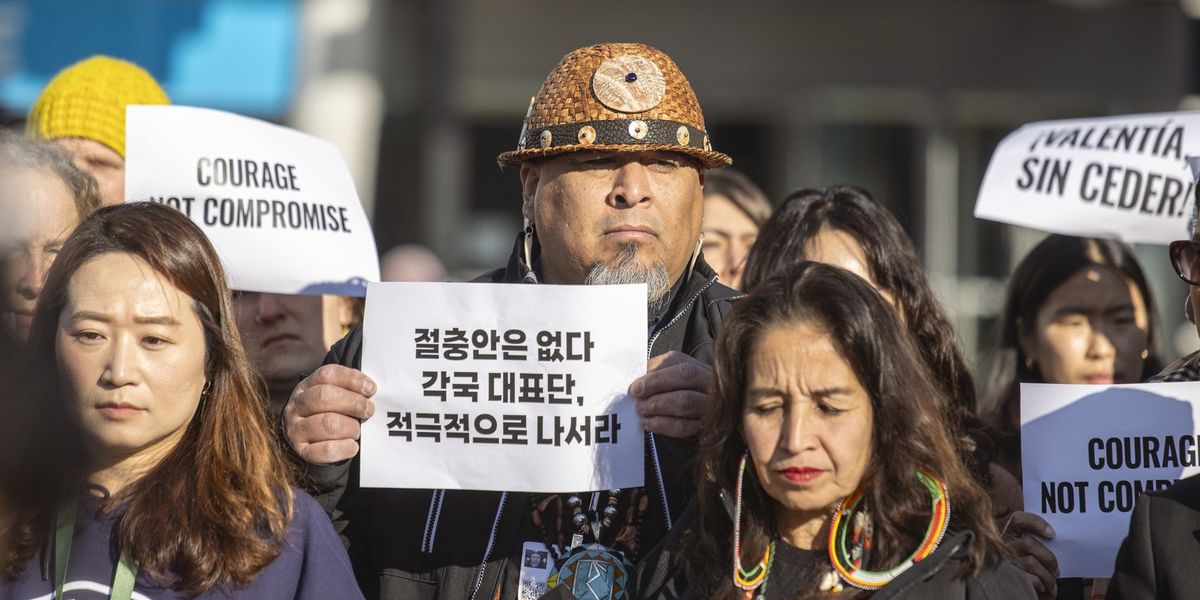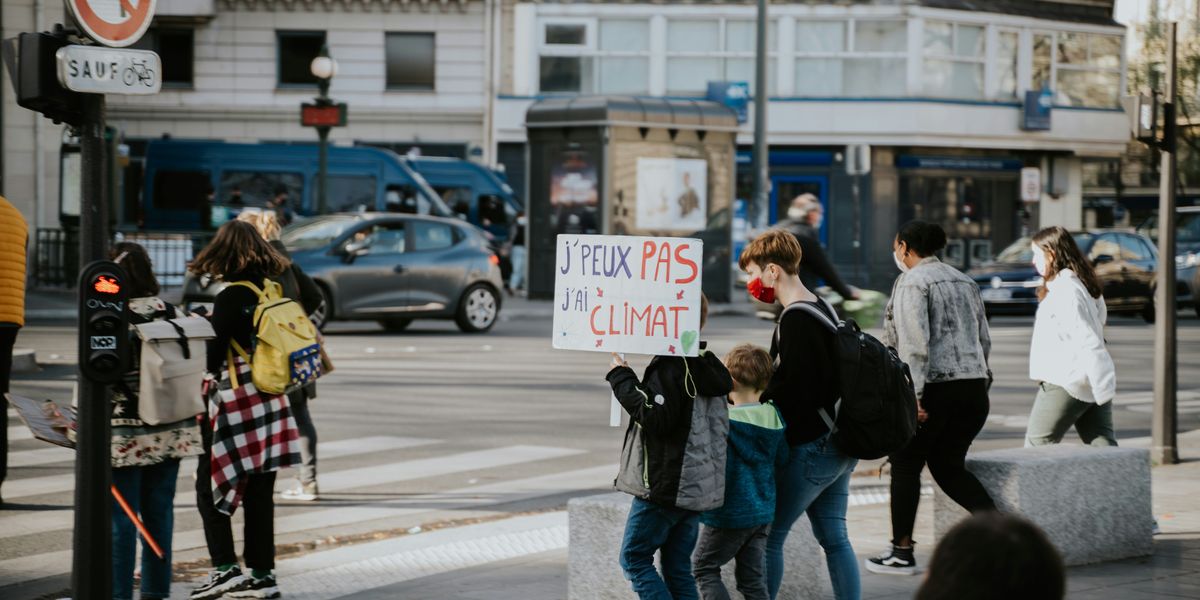supreme court
Youth climate case petition heads to Supreme Court
A group of young plaintiffs is asking the Supreme Court to allow their climate lawsuit against the federal government to proceed after lower courts dismissed it.
In short:
- Youth plaintiffs claim the U.S. government violated their constitutional rights by failing to address climate change.
- The case was previously dismissed by appellate courts, but the plaintiffs are now petitioning the Supreme Court to revive it.
- Similar cases have had success, including a settlement in Hawaii requiring the state to decarbonize its transportation system.
Key quote:
“The Department of Justice has entirely blocked our path to trial. It’s really important to us that we get a fair say in court.”
— Sahara Valentine, plaintiff
Why this matters:
The case highlights the growing legal battles over government responsibility for climate change. The outcome could set a precedent for how courts handle climate lawsuits and force policy shifts aimed at reducing carbon emissions.
Additional coverage: The court orders dismissal of a youth-led climate lawsuit against the US government
Supreme Court considers reviving nondelegation doctrine limiting agency power
The Supreme Court may soon revisit a long-unused doctrine that could curb federal agencies’ authority by placing more responsibility on Congress to legislate directly.
In short:
- Conservative justices are signaling interest in reviving the nondelegation doctrine, which limits how much power Congress can delegate to federal agencies.
- The Pacific Legal Foundation argues Congress has given too much power to agencies, challenging environmental regulations as part of this strategy.
- If revived, the doctrine could reshape how agencies like the EPA regulate, shifting more responsibility back to Congress.
Key quote:
“This is the next frontier of separation of powers. This is definitely something we’re pushing in our litigation.”
— Luke Wake, attorney with Pacific Legal Foundation
Why this matters:
Reviving the nondelegation doctrine could reduce the power of regulatory agencies, requiring Congress to take on more direct decision-making. This shift could lead to delays in addressing complex issues like environmental protections due to political gridlock.
Read more: EPA loses ground in Supreme Court decisions
Recent Supreme Court rulings could hinder climate policies
The Supreme Court's recent decisions limiting federal authority are already complicating the legal landscape for environmental regulations, potentially slowing down critical climate action.
In short:
- The Supreme Court's rulings, including the overturning of the Chevron doctrine, weaken federal agencies' ability to enforce climate-related regulations.
- Lower courts have started to return cases for reconsideration, leading to delays and uncertainty in climate policy implementation.
- Legal experts warn that the uncertainty may discourage federal agencies from pursuing ambitious climate policies.
Key quote:
"We are at a critical point for climate action, and in the absence of Congressional legislation, we’re going to be asking our federal agencies to do more and more with the statutory tools that they already have."
— Jason Rylander, legal director, Center for Biological Diversity
Why this matters:
These Supreme Court rulings could significantly delay or derail efforts to mitigate climate change by limiting the power of federal agencies. Without bold regulatory action, achieving critical climate goals may become increasingly difficult.
Related EHN coverage:
Brazil revisits law restricting Indigenous land claims amid rising violence
Indigenous communities in Brazil face increasing violence as the Supreme Court reviews a controversial law limiting land rights based on occupation before 1988.
In short:
- The Brazilian Supreme Court is reconsidering a law that restricts Indigenous land claims to territories occupied before 1988.
- Critics argue the law is unjust, as many Indigenous groups were forcibly displaced before that date and now face conflicts with farmers and developers.
- Violence against Indigenous communities has surged, with over 200 murders reported in the past year alone.
Key quote:
“We need to guarantee that Indigenous lands are demarcated and protected in order to combat climate change.”
— Kleber Karipuna, executive director, Articulation of Indigenous Peoples of Brazil.
Why this matters:
The law threatens Indigenous land rights, fueling violence and undermining efforts to protect critical biodiversity and combat climate change.
Americans understood climate change decades ago
In the 1960s, Americans across various sectors, including government and media, were aware of climate change, contrary to recent Supreme Court opinions.
In short:
- Historian Naomi Oreskes uncovered evidence that scientists, Congress and even magazines like Sports Illustrated discussed climate change before 1970.
- A forthcoming paper reveals more than 100 congressional hearings on CO2 and climate issues before the Clean Air Act's enactment.
- The research challenges current legal interpretations, suggesting Congress intended to empower the EPA to regulate greenhouse gases.
Key quote:
“We discovered a universe of discussions by scientists, by members of Congress, by members of the executive branch.”
— Naomi Oreskes, historian of science at Harvard University
Why this matters:
This research highlights a forgotten history of climate awareness, challenging narratives that downplay past knowledge and intent. Recognizing this history could inform current legal and policy debates about climate regulation.
Biden proposes Supreme Court term limits and ethics code
President Biden advocates for term limits and a binding ethics code for Supreme Court justices to address concerns about the court's conservative majority impacting environmental protections.
In short:
- Biden's proposal aims to curb the Supreme Court's conservative influence by instituting 18-year term limits and an ethics code.
- Environmental groups support the move, citing the court's recent decisions undermining environmental regulations.
- The plan includes a constitutional amendment to eliminate immunity for crimes committed by former presidents while in office.
Key quote:
“What is happening now is not normal, and it undermines the public’s confidence in the court’s decisions, including those impacting personal freedoms. We now stand in a breach.”
— President Joe Biden
Why this matters:
Changes to the Supreme Court could shift its approach to environmental regulations and restore public trust in its impartiality. This move seeks to prevent a single presidency from significantly altering the court's composition for generations.
Supreme Court considers halting Biden's EPA climate rule
The Supreme Court may undermine the U.S. Environmental Protection Agency's latest rule on emissions from power plants, following challenges from conservative states and industry groups.
In short:
- Conservative states and industry groups asked the Supreme Court to halt Biden's rule on power plant emissions.
- Critics argue the rule threatens affordable electricity and exceeds EPA’s authority.
- Legal experts doubt the Supreme Court will act against the rule like it did with the Obama-era Clean Power Plan.
Key quote:
“This rule poses a significant threat to affordable and reliable electricity for millions of Americans, especially as power demand skyrockets across the nation.”
— Jim Matheson, CEO of NRECA
Why this matters:
A Supreme Court stay would delay or potentially block regulations aimed at reducing greenhouse gas emissions from power plants. This could hinder efforts to combat climate change and maintain cleaner air standards.



















